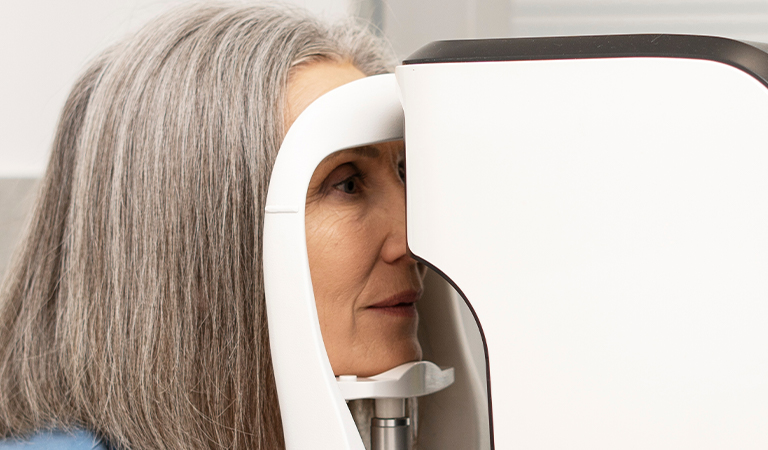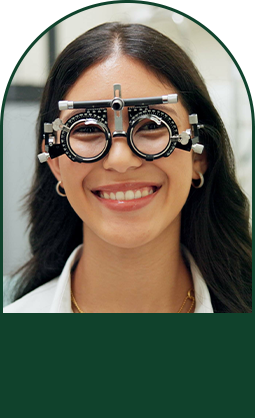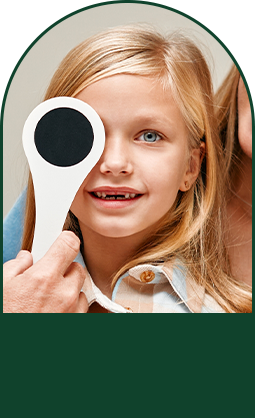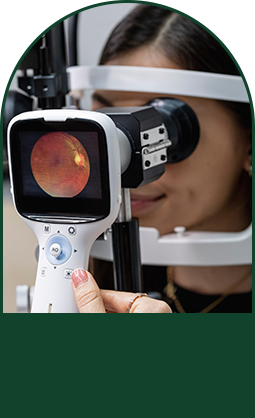Protect Your Eyes Through Early Detection
Did you know that around 90% of vision loss is preventable or treatable? However, many conditions, such as AMD or diabetic retinopathy, begin to develop without noticeable symptoms. That means they can cause lasting damage before you notice any problems. Regular comprehensive eye exams can catch eye conditions before you’re even aware of them.
Our comprehensive eye exams include retinal imaging, visual field tests, and more to help us understand your eye health, not just your prescription.
Request AppointmentWhy Early Diagnosis Is Key
We believe that prevention and early detection of eye disease are vital for our patients’ health. That’s why we invest in key diagnostic technology such as OCT scans, electroretinogram (ERG), and anterior segment cameras to detect even the smallest changes in your eye health or function.
After diagnosis, we will work together to develop a personalized treatment plan tailored to your symptoms and preferences. Early intervention often leads to better outcomes, so it is important to begin treatments even without symptoms.
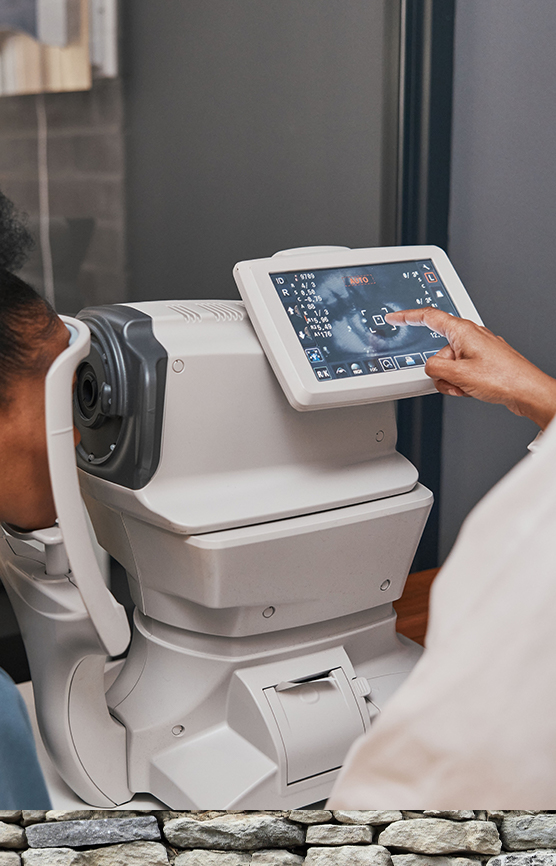
AMD Diagnosis & Management
AMD, or age-related macular degeneration, impacts central vision. During the advanced stages of AMD, people may experience difficulties with reading fine print, driving, or recognizing faces. However, in the early stages, there may be no noticeable symptoms, so people may not realize they have it.
During our comprehensive eye exams, we screen for AMD. Having retinal images and OCT scans at regular intervals (every 1–2 years as per your typical eye exam schedule) allows us to see the health of your eye over time. This enables our team to detect any changes to your macula that can indicate AMD early on.
At Dr. Korthals & Associates, we offer photobiomodulation therapy to treat dry AMD. This may help support retinal cell function and reduce inflammation in the early stages of AMD. We also offer AREDS2 supplements, which are proven to help slow the progression of intermediate AMD to late AMD.
Diagnosing & Managing Other Common Eye Diseases
We understand that living with a family history of eye disease can be stressful. That’s why we work together to help monitor and manage any conditions you may have or be predisposed to.
At Dr. Korthals & Associates, we believe that prevention is the most effective treatment. As part of our prevention efforts, we’re dedicated to educating our patients about conditions they currently have or are concerned about developing in the future.
Combined with our diagnostic screenings, we’ll explain the signs and symptoms to watch for between visits. We’ll also keep you informed throughout the treatment process so that you can make decisions that feel right for your body and health.
Glaucoma
Glaucoma is a group of eye diseases that damage the optic nerve, typically caused by increased pressure within the eye. Left untreated, it can lead to vision loss.
Symptoms include:
- Loss of peripheral (side) vision
- Loss of tunnel vision in advanced stages
To manage glaucoma, you may be prescribed eye drops, laser treatments, or referred for surgery.
Diabetic Retinopathy
Diabetic retinopathy is a complication of diabetes that damages the blood vessels in the retina. Without intervention, it can lead to vision impairment or blindness.
Some signs and symptoms include:
- Blurred vision
- Floaters
- Vision loss
To manage diabetic retinopathy, it is vital to keep blood sugar levels within a normal range. Other management techniques include laser therapy, injections, and, in some cases, surgery.
Keratoconus
Keratoconus is an eye condition that causes the cornea (the front part of the eye) to thin and bulge outward into a cone shape. It may cause blurred vision and increased sensitivity to light.
Symptoms include:
- Blurred or distorted vision
- Increased sensitivity to light
- Frequent changes in eyeglass prescriptions
- A sudden worsening or clouding of vision
To manage keratoconus, we can fit you with glasses and soft or rigid gas-permeable contact lenses.
Choroidal Nevus
A choroidal nevus is a darkly pigmented spot on the back of the eye. Similar to a mole or freckle on your skin, a choroidal nevus is typically benign. However, regular monitoring is key to make sure it doesn’t cause future issues.
Usually, a choroidal nevus is found during a routine eye exam through retinal imaging. However, some cause symptoms such as decreased vision, flashes of light, or floaters.
To manage choroidal nevus, we recommend regular eye exams and monitoring. Although most choroidal nevi are harmless, in rare cases, they may develop into choroidal melanoma, a form of eye cancer. Regular monitoring helps detect any concerning changes early.
Cataracts
Cataracts occur when the normally clear lens of the eye becomes clouded. They commonly develop with age.
Symptoms include:
- Cloudy or blurry vision
- Partial vision loss
To manage cataracts, we can adjust your prescription during the early stages. During later stages, we may recommend cataract surgery and will provide you with pre-surgery testing, referrals, and co-manage post-operative appointments and healing.
Early Detection Using Diagnostic Technology
We use key diagnostic technology to help us catch signs of eye diseases, often before symptoms even arise. Our technology includes:
- Optos retinal imaging and OCT scans, which show detailed images of your retina
- ERG, which checks the function of your retinal cells
- Anterior segment camera, which shows a clear picture of your cornea
As many eye diseases progress before symptoms occur, our diagnostic technology is our first defense against progression and vision loss. The detailed imagery and functional tests provide a clear picture of your overall eye health, as well as any microscopic changes that may indicate a problem.
Beyond diagnostics, we also utilize technology such as low-level light therapy (LLLT) to enhance vision affected by eye diseases, including dry AMD.
Protect Your Vision Before Symptoms Arise
At Dr. Korthals & Associates, your visual health is our top priority. That’s why we screen for signs of eye disease in our comprehensive eye exams, even if you have no concerns. Proactive screening catches eye disease early, helping to prevent vision loss, monitor existing conditions, and keep your eyes healthy for years to come.
Contact us to book your next eye exam today and protect your vision for the future.
Request AppointmentVisit Our North Central Iowa Eye Clinics
With 2 convenient locations in North Central Iowa, we are happy to serve Cerro Gordo, Winnebago, Floyd, Hanock, and Kossuth Counties, and beyond.
Mason City
We’re located on South Pierce Avenue near the 4th Street SW intersection and across from Walgreens.
- 422 S Pierce Ave
- Mason City, IA 50401
Hours of Operation
- Monday: 8:00 AM – 6:00 PM
- Tuesday: 8:00 AM – 6:00 PM
- Wednesday: 8:00 AM – 6:00 PM
- Thursday: 8:00 AM – 6:00 PM
- Friday: Closed
- Saturday: Closed
- Sunday: Closed
Lake Mills
Find us on West Main Street between Mill Street and Washington Street.
- 213 W. Main
- Lake Mills, IA 50450
Hours of Operation
- Monday: Closed
- Tuesday: 8:00 AM – 5:00 PM
- Wednesday: Closed
- Thursday: Closed
- Friday: Closed
- Saturday: Closed
- Sunday: Closed
Our Eyewear Brands








Our Blogs
Your Eyes In The Digital World
Eye Health and DiseasesIt’s no secret we live in a very digital world and use digital devices throughout the day. While we cannot escape exposure to digital devices and blue light, it is important to know how our eyes are affected by our changing technological environment. […]
Protecting Your Eyes in Every Season
Eye Health and DiseasesThere are many things we need to protect our eyes from all year round, including allergies, dry eye, and harmful UV rays. Each of these could affect your eyes any day of the year. Take a look at these tips for protecting your eyes so you can stay allergy-free […]
6 Common Eye Symptoms and What to Do
Eye Health and DiseasesSuffering from eye discomfort or blurry vision can be scary, especially if it comes on suddenly or is a result of a dramatic event. Below are some of the common eye-related disorders. However, remember that common doesn’t mean it should be ignored. […]
Your Eyes In The Digital World

It’s no secret we live in a very digital world and use digital devices throughout the day. While we cannot escape exposure to digital devices and blue light, it is important to know how our eyes are affected by our changing technological environment. […]
Protecting Your Eyes in Every Season

There are many things we need to protect our eyes from all year round, including allergies, dry eye, and harmful UV rays. Each of these could affect your eyes any day of the year. Take a look at these tips for protecting your eyes so you can stay allergy-free […]
6 Common Eye Symptoms and What to Do
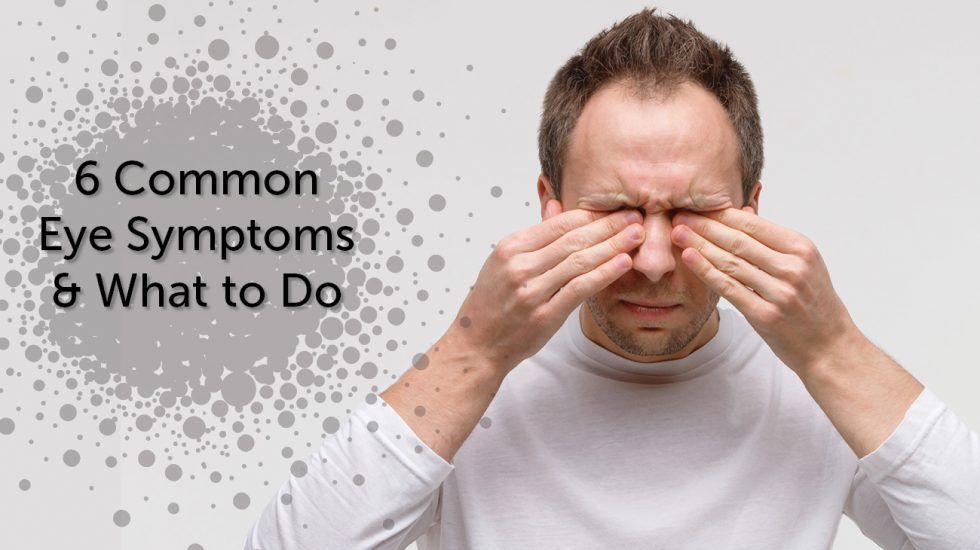
Suffering from eye discomfort or blurry vision can be scary, especially if it comes on suddenly or is a result of a dramatic event. Below are some of the common eye-related disorders. However, remember that common doesn’t mean it should be ignored. […]

